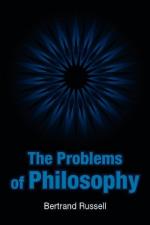|
This section contains 442 words (approx. 2 pages at 400 words per page) |

|
Chapter 13, Knowledge, Error and Probable Opinion Summary and Analysis
We must now ask how we know what is true and false, and so we must understand what "knowing" means and this is quite difficult. We might think that knowledge is true belief, but this seems wrong, since we can believe true things without evidence or at random. I could believe that there are thirty-two thousand hairs on my head at random, but I would not know it even if I guessed correctly.
We also cannot call true beliefs knowledge when they are deduced through bad reasoning processes. So if I come to believe a true fact about the future from a fortune teller, I do not thereby know that the fact obtains because the fortune teller uses poor reasoning processes.
We must know more than what is deduced from true...
(read more from the Chapter 13, Knowledge, Error and Probable Opinion Summary)
|
This section contains 442 words (approx. 2 pages at 400 words per page) |

|




